Almonds are one of the most widely consumed tree nuts globally. They are highly versatile and boast numerous health benefits. This comprehensive summary delves into the production, health benefits, and market outlook for almonds in shell, shedding light on the significance of this popular nut in various industries. 1. Production: 1.1 Almond Cultivation: Almond trees thrive in warm, Mediterranean climates and have been cultivated for thousands of years. Major almond-producing countries include the United States, Spain, Australia, Iran, and Italy. 1.2 Harvesting and Processing: Almond harvesting involves mechanically shaking the trees, following which the almonds are collected. They are then typically washed, processed, and dried. Almonds are often stored in their shells to maintain freshness and protect them from environmental factors. 2. Nutritional Profile: 2.1 Macronutrients: Almonds in shell are rich in healthy fats, primarily consisting of monounsaturated fats and a small amount of polyunsaturated fats. They are also a good source of protein and dietary fiber. 2.2 Micronutrients: Almonds contain essential vitamins and minerals, including vitamin E, magnesium, copper, and phosphorus. These micronutrients contribute to various bodily functions and have numerous health benefits. 3. Health Benefits: 3.1 Heart Health: The monounsaturated fats in almonds help reduce bad cholesterol levels, thereby lowering the risk of heart disease.

nut
 Additionally, almonds’ vitamin E content contributes to cardiovascular health. 3.2 Weight Management: Almonds can aid in weight management as they are satiating and can help control appetite. The combination of healthy fats, protein, and fiber in almonds promotes feelings of fullness and reduces overeating. 3.3 Blood Sugar Control: Almonds have a low glycemic index and are rich in magnesium, both of which can help regulate blood sugar levels. Including almonds in a balanced diet may benefit individuals with diabetes or those aiming to control blood sugar levels. 3.4 Bone Health: Almonds contain essential minerals, including calcium, magnesium, and phosphorus, which play significant roles in maintaining bone health and preventing conditions like osteoporosis. 3.5 Antioxidant Properties: Almonds are a good source of antioxidants, such as vitamin E, which help protect the body against oxidative stress and reduce the risk of chronic diseases. 4. Culinary Uses: 4.1 Snacking: Almonds in shell are often consumed as a healthy and convenient snack. They can be enjoyed on their own or mixed with other nuts and dried fruits. 4.2 Culinary Ingredient: Almonds, both in shell and shelled forms, are used extensively in various cuisines. They can be chopped, sliced, or ground to enhance the flavor and texture of dishes, including salads, desserts, and savory recipes. 5. Market Outlook: 5.1 Global Demand: The demand for almonds, including those in shell, has been steadily rising due to increasing awareness of their health benefits and versatile applications. The United States is the primary consumer and importer of almonds, followed by Europe and Asia. 5.2 Growing Demand for Organic Almonds: With the increasing interest in organic and sustainable food products, the demand for organic almonds in shell has been on the rise. Consumers are increasingly seeking products that are free from chemical additives and grown in an environmentally friendly manner. 5.3 Market Trends: Almonds in shell are commonly sold in bulk quantities, primarily used by food manufacturers and processors for various applications. However, there is also a growing market for retail packaging, where consumers can purchase smaller quantities directly. Conclusion: Almonds in shell are a popular tree nut cherished for their nutritional profile, versatility in culinary applications, and numerous health benefits. With their heart-healthy fats, essential nutrients, and potential to aid in weight management and blood sugar control, almonds in shell have become a staple in various global cuisines. The market outlook for almonds in shell looks promising, with increasing demand driven by consumer interest in healthier food options and the growing popularity of organic products.I. Almond Production and Supply Chain: Almond production plays a vital role in the agriculture industry in many countries, particularly the United States. California alone produces approximately 80% of the world’s almonds. The state’s warm climate, fertile soil, and irrigation systems provide an ideal environment for almond cultivation.
Additionally, almonds’ vitamin E content contributes to cardiovascular health. 3.2 Weight Management: Almonds can aid in weight management as they are satiating and can help control appetite. The combination of healthy fats, protein, and fiber in almonds promotes feelings of fullness and reduces overeating. 3.3 Blood Sugar Control: Almonds have a low glycemic index and are rich in magnesium, both of which can help regulate blood sugar levels. Including almonds in a balanced diet may benefit individuals with diabetes or those aiming to control blood sugar levels. 3.4 Bone Health: Almonds contain essential minerals, including calcium, magnesium, and phosphorus, which play significant roles in maintaining bone health and preventing conditions like osteoporosis. 3.5 Antioxidant Properties: Almonds are a good source of antioxidants, such as vitamin E, which help protect the body against oxidative stress and reduce the risk of chronic diseases. 4. Culinary Uses: 4.1 Snacking: Almonds in shell are often consumed as a healthy and convenient snack. They can be enjoyed on their own or mixed with other nuts and dried fruits. 4.2 Culinary Ingredient: Almonds, both in shell and shelled forms, are used extensively in various cuisines. They can be chopped, sliced, or ground to enhance the flavor and texture of dishes, including salads, desserts, and savory recipes. 5. Market Outlook: 5.1 Global Demand: The demand for almonds, including those in shell, has been steadily rising due to increasing awareness of their health benefits and versatile applications. The United States is the primary consumer and importer of almonds, followed by Europe and Asia. 5.2 Growing Demand for Organic Almonds: With the increasing interest in organic and sustainable food products, the demand for organic almonds in shell has been on the rise. Consumers are increasingly seeking products that are free from chemical additives and grown in an environmentally friendly manner. 5.3 Market Trends: Almonds in shell are commonly sold in bulk quantities, primarily used by food manufacturers and processors for various applications. However, there is also a growing market for retail packaging, where consumers can purchase smaller quantities directly. Conclusion: Almonds in shell are a popular tree nut cherished for their nutritional profile, versatility in culinary applications, and numerous health benefits. With their heart-healthy fats, essential nutrients, and potential to aid in weight management and blood sugar control, almonds in shell have become a staple in various global cuisines. The market outlook for almonds in shell looks promising, with increasing demand driven by consumer interest in healthier food options and the growing popularity of organic products.I. Almond Production and Supply Chain: Almond production plays a vital role in the agriculture industry in many countries, particularly the United States. California alone produces approximately 80% of the world’s almonds. The state’s warm climate, fertile soil, and irrigation systems provide an ideal environment for almond cultivation.
Specifications of nut
 The production process involves orchard management, tree pollination, pest control, and the use of modern harvesting techniques. Once harvested, almonds go through a supply chain process to reach consumers. First, they are sorted to remove any debris or damaged nuts. Then, the almonds are typically processed, including shelling, blanching, and drying. After processing, the almonds may be further processed into various forms such as sliced, diced, or ground almonds. II. Almonds in the Food Industry: The food industry is a major consumer of almonds in shell. Different food manufacturers utilize almonds for an array of products, including snacks, baked goods, confectionery, and cereals. Almonds in shell are often used in trail mixes and as toppings for salads. The natural crunch and flavor of almonds enhance the taste and texture of these food products. Furthermore, almond butter, a popular alternative to peanut butter, is made from almonds. It has gained significant popularity due to its creamy texture and rich flavor. Almond milk, another widely consumed dairy alternative, is made by grinding almonds with water and straining the mixture to remove the solids. This plant-based milk is used as a dairy substitute by individuals with lactose intolerance or those following a vegan diet. III. Health and Wellness Industry: The health and wellness industry has witnessed a surge in consumer interest in recent years, leading to increased demand for almonds in shell. Almonds are a staple ingredient in protein bars, protein powders, and nutritional supplements due to their high protein content and nutrient density. Similarly, almond-based snacks, such as almond protein balls and almond energy bars, have gained popularity among health-conscious consumers. These products provide a convenient and nutritious option for those seeking a quick energy boost or a post-workout snack. IV. Almonds in the Cosmetic and Personal Care Industry: Beyond the food industry, almonds in shell also find applications in the cosmetic and personal care industry. Almond oil, derived from pressing almonds, is a popular ingredient in skincare products such as lotions, creams, and body oils.
The production process involves orchard management, tree pollination, pest control, and the use of modern harvesting techniques. Once harvested, almonds go through a supply chain process to reach consumers. First, they are sorted to remove any debris or damaged nuts. Then, the almonds are typically processed, including shelling, blanching, and drying. After processing, the almonds may be further processed into various forms such as sliced, diced, or ground almonds. II. Almonds in the Food Industry: The food industry is a major consumer of almonds in shell. Different food manufacturers utilize almonds for an array of products, including snacks, baked goods, confectionery, and cereals. Almonds in shell are often used in trail mixes and as toppings for salads. The natural crunch and flavor of almonds enhance the taste and texture of these food products. Furthermore, almond butter, a popular alternative to peanut butter, is made from almonds. It has gained significant popularity due to its creamy texture and rich flavor. Almond milk, another widely consumed dairy alternative, is made by grinding almonds with water and straining the mixture to remove the solids. This plant-based milk is used as a dairy substitute by individuals with lactose intolerance or those following a vegan diet. III. Health and Wellness Industry: The health and wellness industry has witnessed a surge in consumer interest in recent years, leading to increased demand for almonds in shell. Almonds are a staple ingredient in protein bars, protein powders, and nutritional supplements due to their high protein content and nutrient density. Similarly, almond-based snacks, such as almond protein balls and almond energy bars, have gained popularity among health-conscious consumers. These products provide a convenient and nutritious option for those seeking a quick energy boost or a post-workout snack. IV. Almonds in the Cosmetic and Personal Care Industry: Beyond the food industry, almonds in shell also find applications in the cosmetic and personal care industry. Almond oil, derived from pressing almonds, is a popular ingredient in skincare products such as lotions, creams, and body oils.
buy nut
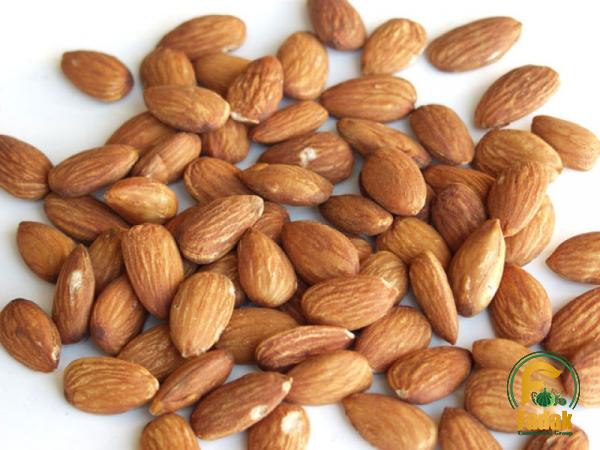 It is rich in vitamin E, antioxidants, and fatty acids that nourish the skin, moisturize, and promote a youthful complexion. Almond oil is also beneficial for hair care, as it helps nourish and condition the hair. It can be found in shampoos, conditioners, and hair oils, providing shine, strength, and protection against damage. V. Almonds in the Animal Feed Industry: Almonds in shell are not only valuable to humans but also have applications in the animal feed industry. Almond hulls, the outer shell of the almond, are high in fiber and protein. After being separated from the almonds during processing, the hulls can be utilized as feed for livestock, particularly dairy cows and sheep. They provide an additional source of nutrition and help improve the animals’ digestion. VI. Export Market and Trade: Almonds in shell are globally traded commodities, with significant exports from countries like the United States, Spain, and Australia. The global almond trade relies on a well-established network of importers, exporters, and distributors. These almonds are transported in bulk packaging, ensuring efficient delivery to various markets around the world. The United States commands a significant share in the global almond export market. Its almonds are exported to a wide range of countries, including China, India, Germany, Spain, and the United Arab Emirates. Rising demand for almonds, coupled with increasing consumer awareness about their health benefits, has paved the way for the growth of international trade in almonds in shell. VII. Challenges and Future Outlook: Despite the numerous opportunities for almonds in shell, the industry faces a few challenges. Climate change, water scarcity, pest control, and fluctuating market prices pose obstacles to almond production. Additionally, natural disasters such as droughts and wildfires can negatively impact almond crops, leading to reduced yields and increased production costs. However, the future outlook for almonds in shell remains optimistic. The rising global interest in healthy, natural, and sustainable food products continues to drive the demand for almonds. Consumer preferences for plant-based diets, along with the versatility and nutritional value of almonds, position them as a key ingredient in various industries. Conclusion: Almonds in shell hold a prominent place in the food, health and wellness, cosmetic, animal feed, and export industries. The production and supply chain process ensures a steady supply of high-quality almonds to meet the growing global demand. As consumers increasingly prioritize health, sustainability, and natural ingredients, almonds in shell are expected to remain popular across various sectors. With their versatility, nutritional benefits, and wide range of applications, almonds are poised to continue their reign as a nutritious and flavorful ingredient in the years to come.
It is rich in vitamin E, antioxidants, and fatty acids that nourish the skin, moisturize, and promote a youthful complexion. Almond oil is also beneficial for hair care, as it helps nourish and condition the hair. It can be found in shampoos, conditioners, and hair oils, providing shine, strength, and protection against damage. V. Almonds in the Animal Feed Industry: Almonds in shell are not only valuable to humans but also have applications in the animal feed industry. Almond hulls, the outer shell of the almond, are high in fiber and protein. After being separated from the almonds during processing, the hulls can be utilized as feed for livestock, particularly dairy cows and sheep. They provide an additional source of nutrition and help improve the animals’ digestion. VI. Export Market and Trade: Almonds in shell are globally traded commodities, with significant exports from countries like the United States, Spain, and Australia. The global almond trade relies on a well-established network of importers, exporters, and distributors. These almonds are transported in bulk packaging, ensuring efficient delivery to various markets around the world. The United States commands a significant share in the global almond export market. Its almonds are exported to a wide range of countries, including China, India, Germany, Spain, and the United Arab Emirates. Rising demand for almonds, coupled with increasing consumer awareness about their health benefits, has paved the way for the growth of international trade in almonds in shell. VII. Challenges and Future Outlook: Despite the numerous opportunities for almonds in shell, the industry faces a few challenges. Climate change, water scarcity, pest control, and fluctuating market prices pose obstacles to almond production. Additionally, natural disasters such as droughts and wildfires can negatively impact almond crops, leading to reduced yields and increased production costs. However, the future outlook for almonds in shell remains optimistic. The rising global interest in healthy, natural, and sustainable food products continues to drive the demand for almonds. Consumer preferences for plant-based diets, along with the versatility and nutritional value of almonds, position them as a key ingredient in various industries. Conclusion: Almonds in shell hold a prominent place in the food, health and wellness, cosmetic, animal feed, and export industries. The production and supply chain process ensures a steady supply of high-quality almonds to meet the growing global demand. As consumers increasingly prioritize health, sustainability, and natural ingredients, almonds in shell are expected to remain popular across various sectors. With their versatility, nutritional benefits, and wide range of applications, almonds are poised to continue their reign as a nutritious and flavorful ingredient in the years to come.


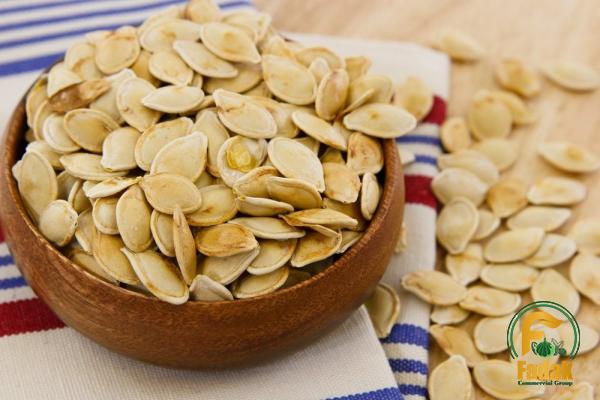
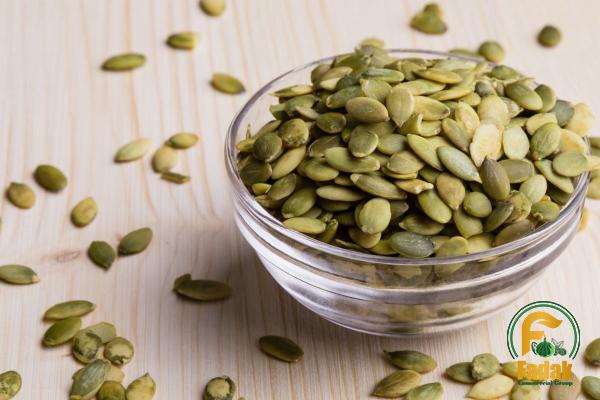
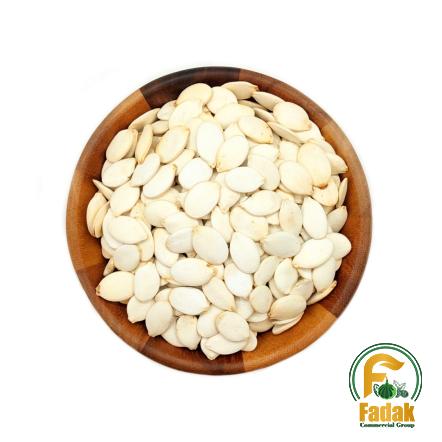
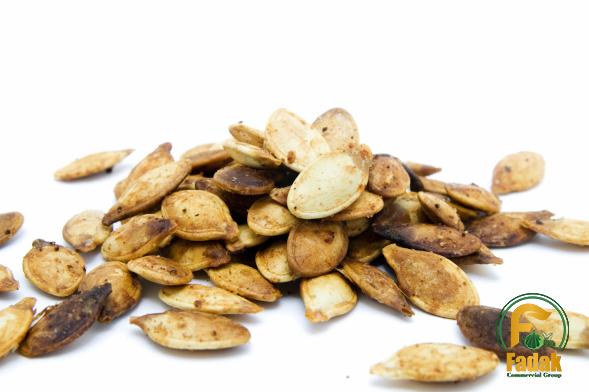


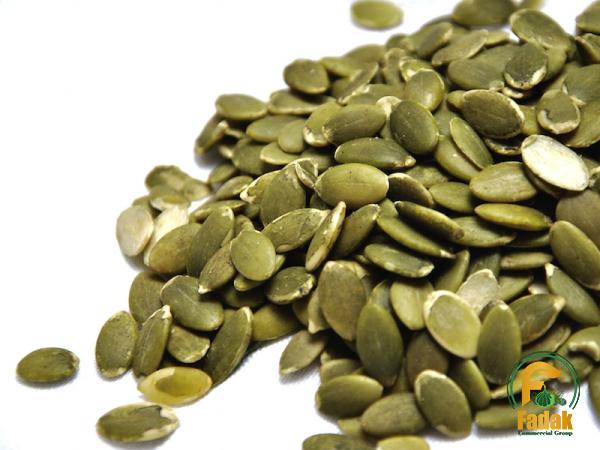

Your comment submitted.